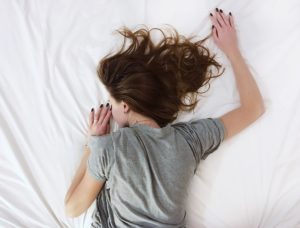Unfortunately, even though the necessity for eight hours of sleep to wake up refreshed is widely recognized, the pressures of a hectic work schedule and modern living standards often result in people making do with just six hours. There’s a prevalent false belief that managing with six hours of sleep, along with regularly consuming double espressos, is enough to stay alert throughout the week. However, this is a major misunderstanding. A recent research on the effects of sleep deficit reveals that functioning on a mere six hours of sleep is tantamount to experiencing total sleep deprivation.

In the sleep deprivation study published in the Sleep Journal in 2004, 48 adult participants were divided into four groups. The first group was allowed to sleep for hours a night for two weeks. The second group was allowed to sleep six hours a night. The third group was allowed to have eight hours of sleep per night, and the fourth group was sleep deprived for three consecutive nights. The test subjects were also not allowed to take naps. Their cognitive performance, including their reaction time, mood and symptoms were monitored every two hours.
Not surprisingly, the group who slept eight hours each night had the best results. Test subjects who slept six hours a night did okay, but, as the end of the study was approaching (around day 10), their performance ratings got worse. The group who was allowed to sleep only four hours a night was getting worse each day.
The study found that the participants who slept only four or six hours a night had a severe decrease in cognitive performance. They were actually functioning the same as if they had been sleep deprived for two days. The only difference between the mentioned two groups was that the performance of the four-hour group declined much faster. Interesting information is that the participants that showed decreased cognitive performance after ten days of sleeping six hours per night were unaware of the changes based on their “sleepiness ratings”. This means that you hit the sack regularly for only six hours per night, you are not living your best life, and even worse, you may not even be aware of it. It’s time to back away from the Netflix, stop scrolling Instagram, and go to bed earlier.
Sleep Related
Let us know if you liked the post. That’s the only way we can improve.
Co-founder of Counting Sheep and Sleepaholic
